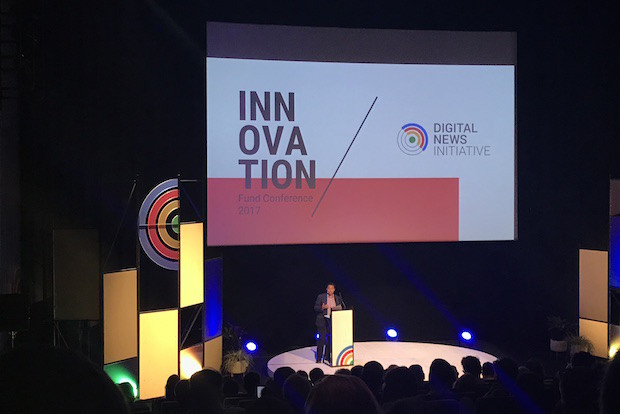"It's easy for us in the news business to forget how high the price for a disconnected world was.
"We tend to focus on what we have lost as publishers but forget to celebrate what news consumers have gained," said Lydia Polgreen, editor-in-chief of HuffPost, kicking off Google's DNI Fund conference in Amsterdam yesterday (6 July).
Before she took the helm of HuffPost at the end of 2016, Polgreen held different roles at The New York Times, including editorial director of NYT Global and chief of the organisation's Johannesburg bureau.
In her keynote speech, she reflected on the advantages of the interconnected web and the rise of platforms that allow anyone to write and publish their own stories, but also on the changes they have created in the journalism industry.
"The cost of news has increased – in the US, most journalism jobs that have vanished are in local journalism. News organisations are relying more and more on wire services and inexperienced stringers, and the world is poorer for that."
She referred to HuffPost as a "digital legacy publisher" and pointed out that when she was still at the NYT, HuffPost aggregated her coverage about Nelson Mandela and benefitted from it.
"In many ways, HuffPost was a digital innovator: it created an influencer blog, it pioneered aggregation and curation, it was one of the first outlets to see the power of SEO as a way to get information to people when they are looking for it."
HuffPost recently rebranded its name and homepage to "pay homage" to its tabloid legacy and despite its success on social platforms, it is also focusing on getting readers to come to the website.
The outlet has seen traffic to its homepage increase as people look to get news directly, via means they trust, she added.
As opposed to the NYT, which tended to see platforms like Facebook as a tool for marketing because its ultimate goal was to increase the number of subscribers, Polgreen said, HuffPost sees social media "as a sandbox" and uses Facebook to get its brand in people's feeds.
With its Facebook community called Canceled Plans for example, the publication created a space to aggregate "journalism from all around the world" about introverts, a topic of interest to HuffPost readers, but without branding it with the organisation's logo.
"We ignore, at our peril, that we are brands too. Companies like Apple spend time telling people why they should choose their products, and we also need to get much better at telling our own story: why should a reader lean forward to consume your journalism?
"News organisations who survived the first round of disruption are now ready for the next wave, wherever it washes up," said Polgreen.
Free daily newsletter
If you like our news and feature articles, you can sign up to receive our free daily (Mon-Fri) email newsletter (mobile friendly).










